Often highlighted as a low-carb food, nuts are generally considered a healthy choice for people with diabetes.
But, like many healthy foods, the old saying about “too much of a good thing…” rings true.
So, are nuts a good snack for people with diabetes? Absolutely, your favorite nuts like cashews, almonds, macadamias, Brazil nuts, filberts, walnuts, and the regular old peanut (which is actually a legume!), are all good options.
However, when it comes to snacking on nuts with diabetes, moderation is key.
In this article, we’ll look at both the benefits of nuts and the drawbacks of eating too many.
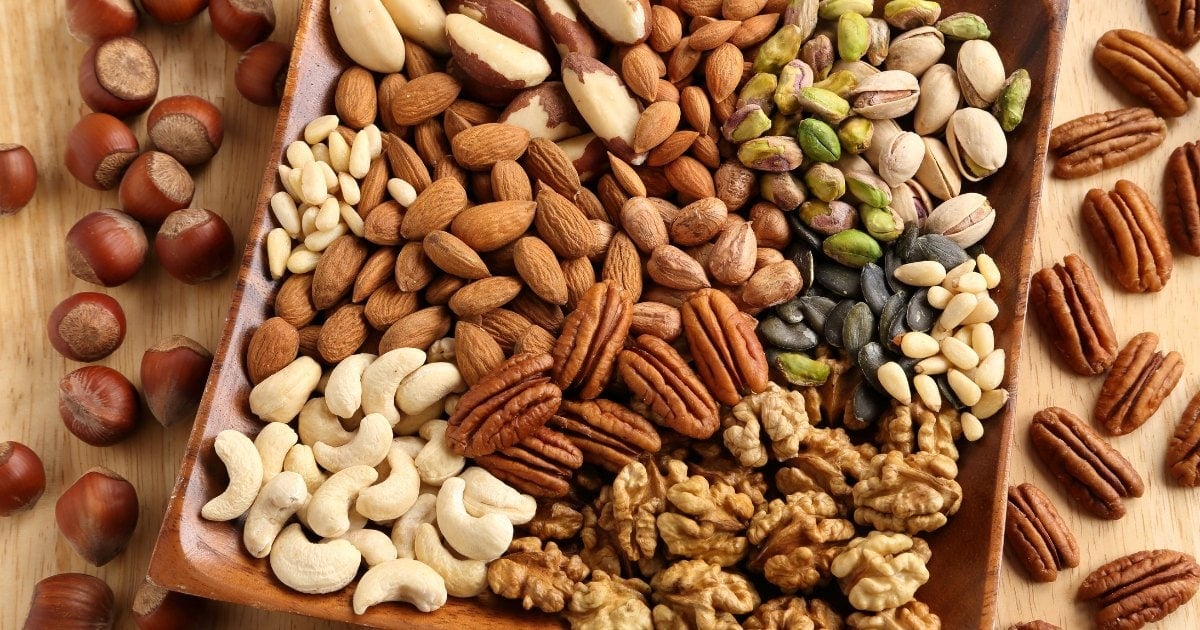
Do nuts affect blood sugar levels?
While nuts are certainly low in carbohydrates compared to fruits and grains, they are not low enough to ignore their impact on your blood sugar.
Most nuts have about 5 to 6 grams of carbohydrates per 1-ounce serving. After subtracting the dietary fiber (part of the carbohydrate count that is not broken down into glucose), the resulting net carbs of some nuts, such as walnuts, are as little as 2 grams per 1-ounce serving.
Peanuts — a legume often grouped with nuts — are seemingly low in carbohydrates but can also raise your blood glucose levels more than you’d expect. Peanut butter often has a small amount of sugar added to it, increasing the carb count modestly, but it’s often enough to raise your blood sugar.
That being said, even freshly ground 100 percent peanuts can raise your blood sugar, too.
For those taking insulin, you may find you need a very small bolus of insulin with a serving of peanuts, peanut butter, or other nuts.
Some studies have shown improvements in fasting blood sugar and A1c levels (a measure of glucose control over the previous 2 to 3 months) when consuming nuts, most likely because of the healthy fats, fiber, antioxidants, and other plant compounds present in nuts.
Additionally, consuming fats with a carbohydrate-rich meal slows the absorption of carbohydrates and therefore reduces blood sugar spikes.
Emerging research suggests that this effect may be quite noticeable if fats are consumed first before carbohydrate-rich foods. This is considered a “carbohydrate-last” meal pattern.
However, it’s important to note that although nuts may have a positive impact on blood sugar, they should not be consumed with every snack or meal.
The nutrition of nuts
In general, nuts can absolutely be part of a healthy, whole-foods-based diet for people with diabetes, especially for those eating a diet lower in carbohydrates. But that doesn’t mean we should go wild and eat nuts without restraint.
Nuts offer so many health benefits, but they are also very dense in calories and dietary fat.
The nutrition profile of most nuts
The recommended serving size for nuts is 1 ounce, which is approximately equivalent to 1/4 cup. The exact volume can vary slightly with different types of nuts due to their size and density.
On average, a 1-oz serving of nuts offers 160 to 200 calories, 5 to 6 grams of carbohydrates, and 1 to 3 grams of dietary fiber.
According to the U.S Department of Agriculture (USDA), a 1-oz serving of salted, mixed nuts, for example, contains about:
- 170 calories
- 14 grams of fat
- 7 grams of total carbohydrate
- 2 grams of dietary fiber
- 1 gram of naturally occurring sugar
- 5 grams of protein
Nuts also contain a variety of vitamins, minerals, and other beneficial nutrients, including:
- Antioxidants
- Omega-3 fatty acids
- Calcium
- Choline
- Iron
- Zinc
- Magnesium
- Phosphorus
- Potassium
- Vitamins A, C, E
- Vitamins B1, B2, B3, B5 B6, B7, B9
So while nuts are definitely high in healthy nutrients, they also pack a serious punch when it comes to calories. A single cup of nuts (which doesn’t seem like much and is quickly eaten) can pack around 800 calories, between one third to one half of the daily calorie needs of most adults.
Read this guide on how to determine your daily calorie needs.
Understanding the fat in nuts
People with diabetes are more than twice as likely to have heart disease compared to people without diabetes, according to the U.S. Centers for Disease Control and Prevention (CDC).
This makes it especially important to be mindful of the types and amounts of fat you consume and how they impact your heart health when you live with diabetes.
The fat in nuts is largely monounsaturated, which is very good for lowering LDL (“bad”) cholesterol and protecting your overall heart health..
Research suggests that both high LDL levels and low HDL (“good”) cholesterol levels are associated with an increased risk of death from cardiovascular diseases. There is evidence to suggest that low HDL cholesterol levels may be especially concerning for people of certain racial groups.
This underscores the importance of balanced cholesterol levels for cardiovascular health.
Other health benefits of nuts
Plant-based calcium source for bone health
Other health benefits of nuts include their potential to support bone health.
Most nuts are considered low in calcium, but almonds stand out as a source of this mineral. They offer around 76 milligrams of calcium per 1-ounce serving, about 6 percent of the daily value of calcium.
While this is considered less than a “good source,” it can still contribute to your daily calcium needs.
It’s important to view almonds as part of a diverse diet rather than direct replacements for other food sources in terms of calcium content. For instance, almonds offer a source of calcium, but the amount is less per serving compared to other calcium-rich foods such as seeds, beans, fortified soy products, and dairy products.
Research has consistently supported calcium’s role in maintaining bone mineral density, and calcium is a necessary mineral for bone health during all life stages.
Almond milk can be a complementary choice for those looking to diversify their calcium sources, particularly if fortified with calcium and vitamin D. However, relying solely on almond milk for calcium needs may require careful attention to product labels to ensure adequate nutrient intake.
Other plant-based calcium sources, such as dark leafy greens, including spinach, kale, and romaine lettuce, can also contribute to a well-rounded diet supporting bone health. Balancing various calcium sources, along with maintaining a diet rich in other bone-supportive nutrients, is key to optimal bone health.
Reducing inflammation
“Given their strong antioxidant/anti-inflammatory potential, nuts may also exert a favorable effect on other risk factors of cardiometabolic disease, such as inflammation and oxidative stress,” explained a 2023 study on nut consumption and inflammation.
The review looks into how eating nuts might help fight inflammation and stress in the body, which are factors that can lead to various long-term health issues. The study suggests that including nuts in our diet could be helpful for reducing inflammation (but that more research is needed to know exactly how they help).
And remember, this doesn’t mean you should eat nuts by the handful.
Nuts are still dense in calories, and one 1/4 cup serving per day is plenty for the average person.
The Harvard School of Medicine encourages nuts as part of an overall anti-inflammatory diet, too:
“To reduce levels of inflammation, aim for an overall healthy diet. If you’re looking for an eating plan that closely follows the tenets of anti-inflammatory eating, consider the Mediterranean diet, which is high in fruits, vegetables, nuts, whole grains, fish, and healthy oils.”
Reducing your risk of cardiovascular disease
Regularly including nuts in your diet has been associated with a lower risk of cardiovascular disease and even a reduction in death from all causes.
This is supported by extensive research from Harvard, which analyzed data from over 210,000 health professionals for up to 32 years.
Their findings revealed that people eating one ounce of nuts five or more times per week had a 14 percent reduced risk of cardiovascular disease and a 20 percent decreased risk of coronary heart disease compared to those who seldom ate nuts.
Notably, this protective effect was observed not just for tree nuts but also for peanuts, which, despite being legumes, share a similar nutritional profile to nuts.
With evidence pointing toward benefits for heart health, inflammation control, and bone strength, nuts emerge as a valuable component of a healthful diet, though it’s important to remember that these findings are based on observational studies (which highlight associations rather than cause-and-effect relationships).
Will eating nuts cause weight gain?
While nuts are calorie-dense due to their high fat content, they also offer protein and dietary fiber, which contribute to a feeling of fullness and can aid in weight management when consumed in moderation.
These feelings of fullness can help reduce overeating, making nuts a nutritious snack option that can fit well into a balanced diet without necessarily leading to weight gain.
However, it’s important to eat nuts mindfully, since excessive grazing throughout the day could lead to consumption of excess calories. It’s important to enjoy nuts in controlled portions to take advantage of their health benefits without overdoing the calories.
How often should people with diabetes eat nuts?
Incorporating nuts into your diet can offer a variety of benefits due to their nutrient density and low glycemic index, helping with blood sugar management.
While a daily serving of about 1/4 cup (1 ounce) of whole nuts or 2 tablespoons of nut butter is generally recommended, recent research suggests more specific guidelines.
Studies indicate that consuming nuts multiple times per week can improve heart health and reduce the risk of cardiovascular disease, with some experts recommending at least four servings per week.
However, people with certain conditions, such as chronic kidney disease (CKD), may need to monitor nut intake more closely due to their higher phosphorus content.
In such cases, limiting consumption to fewer servings per week and choosing nuts lower in phosphorus, like almonds and cashews, may be advisable. Speak with your healthcare provider if you have a condition that may be affected by nut consumption to determine the best course of action.
Budget constraints can also influence how often you eat nuts. They can be pricey, but some varieties, such as peanuts, offer a more affordable alternative while still providing nutritional benefits. Buying in bulk, choosing store brands, or opting for less-expensive types of nuts can make regular consumption more feasible.
It’s important for people with diabetes to measure how different types of nuts affect their blood sugar levels, as individual responses can vary. Incorporating nuts gradually and monitoring blood glucose can help identify what sort of impact this food has on your blood sugar patterns.
Lastly, when selecting nuts, prioritize those that are not heavily salted or covered in sugar or chocolate to ensure the healthiest options. While oil-roasted nuts are flavorful, they may contain additional fats, making dry-roasted or raw nuts a healthier option.
Are some nuts better for people with diabetes than others?
Certain nuts stand out for their rich nutrient profiles, though it’s worth noting that most nuts bring valuable health benefits to the table. For example:
- Almonds include abundant levels of vitamin E, an antioxidant that supports overall health.
- Walnuts stand out for their omega-3 fatty acids, important for heart and brain health.
- Cashews are recognized for their significant magnesium levels, vital for energy production and bone health.
- Brazil nuts have high levels of selenium, a mineral that supports thyroid health and has antioxidant properties. .
- Hazelnuts (filberts) contribute valuable monounsaturated fats and vitamin E, helping with heart health and blood glucose management.
- Pecans and macadamia nuts, with their monounsaturated fats and antioxidants, also play a role in managing cholesterol and reducing oxidative stress.
- Almonds, peanuts, and pistachios are among many nuts noted for their ability to lower LDL cholesterol.
Including a variety of nuts in moderate amounts can enrich your diet with essential nutrients while supporting diabetes management.
Which nuts should people with diabetes avoid?
As discussed, nuts in moderation generally offer a healthful option for people with and without diabetes. However, there are certain varieties of nuts that are better left on the shelf.
These included heavily salted nuts, due to their high sodium content, as well as varieties coated in toppings such as sugar, honey, or chocolate, due to their high sugar content.


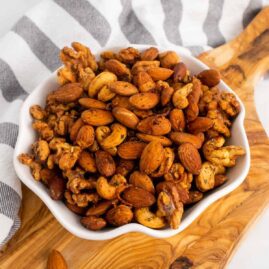
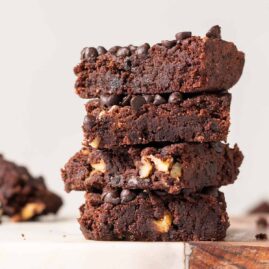
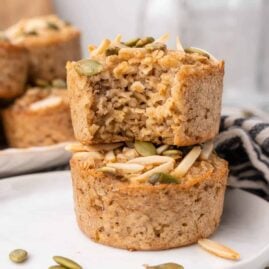

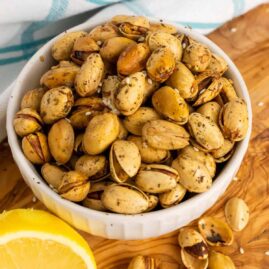

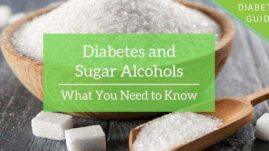


Maria
Thank you for the info on nuts. Very informative.
What is your take on dates?
Thank you
Maria
Christel Oerum, MS
I like dates. However, they are very carb dense so from a blood sugar perspective they can be a little challenging sometimes. Your average date has 5 grams of carbs
j.Sherman
I’ve a Quick question, I’m diabetic (type 2) and love my P B & J’s using a heaping tablespoon of P, would I be better off using an alternate nut butter like almond or cashew butter instead? Anybody? Thank you.
Christel Oerum
As long as you choose peanut butter without added sugar there shouldn’t be much difference. It’s the added sugar that makes the big difference
corlis watkins
Very informative article. Thank you!
Tony Sangster
Thank you for this interesting article. And yes, I have to watch peanut’s effect on my BSLs very carefully !! I wonder whether the study on nuts and heart disease is measuring risk in relative or absolute terms. From what I have read , to show statistically significant results requires measuring absolute risk not relative risk.
Ginger Vieira
Hi Tony! That’s a great point — always tricky to determine the real factors of any study and what may have been skewed to get results. Controlling variables to show absolute risk vs. relative risk isn’t always possible in many studies.
Thanks for reading!
Monica
I don’t have diabetes, nor pre-diabetes, but highly sensitive to carbs and sugar. A 1/2 slice of simple rye bread brings up my blood sugar to 169. ?
So I cut out all carbs, all sugars, and lost 23 lbs, M.D. says I’m underweight at 112 lbs. I’ve increased protein, eat broccoli or spinach each and every day, lots of water…..but still can’t eat a slice of bread. Any advice please? I’m so hungry.
Christel Oerum
I’d suggest you work with a nutritionist and your medical team. If youre blood sugar comes down by itself, which I suspect since you’re not diabetic, I personally don’t see any reason to cut out bread, but your doctor needs to advise you there.
If you continue to cut out carbs, you’ll need to work with a nutritionist to get enough energy from protein and fats
Gina Kray
Try raw nuts almonds walnuts Brazil nuts.. they really help curb appetite in modest amount 1-2 oz a day. Beans help too
Janet King
I have type 2. I am weak from not eating and when I think I ate appropriate I find an article or diet guide that says it was not. What program is good to lower bad cholesterol A1c and sugar in general and minimize sodium.
Christel Oerum
We all need to eat! The thing is there are so many different guidelines (remember they are not rules!) on how to eat out there. Some will work for you and some will not. Generally, the best way of eating for us is a way you can adhere to.
Best way to reduce sodium is to cook yourself and not over salt your food. How much you eat should depend on your goals and activity level. If you do not take any meds you have most likely been recommended a low carb diet to manage your blood sugar.
Just go by that, start your plate with veggies, lean protein and a small amount of fat and carbs. You can read more of which food sources I prefer here on the site, just search protein, fat or carbs